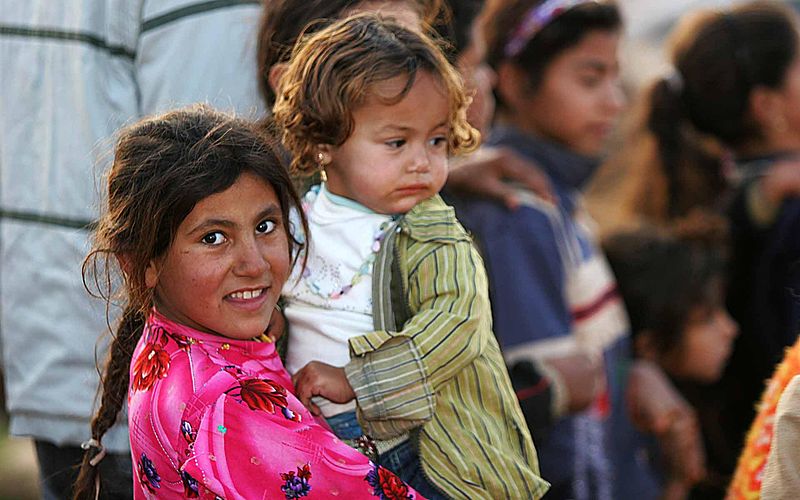The Vastness of Turkey’s Foreign Aid

By contributing more than a quarter of the entire world’s humanitarian aid, Turkey became the leading country in providing aid to those in need in 2019. Needless to say, its strength in foreign aid is with humanitarian assistance. With combined efforts of government organizations, nonprofits and private donors, Turkey’s foreign aid comes through giving homes to refugees, aiding during natural disasters and providing relief for struggling countries.
Giving Homes to Refugees
Turkey is currently leading the world in hosting refugees. As of 2020, there are about 4.1 million refugees residing in Turkey. In addition to giving them homes, Turkey also has legislation to keep the foreigners and asylum seekers protected. The Regulation of Temporary Protection (RTP) allows those who are fleeing to Turkey to stay under its protection by making sure they do not have to return to the countries they fled. The Law on Foreigners and International Protection (LFIP) ensures the implementation of the RTP within and around Turkey’s borders.
UNHCR (United Nations Refugee Agency) is working with the government and other organizations, like UNICEF and Global Compact for Refugees, to make sure that the refugees receive proper aid once they are in Turkey’s borders. Living in refugee camps that the country provides, children obtain access to education either in Turkish public schools or temporary education centers. UNHCR encourages social cohesion between the refugees and local community members while monitoring tensions and issues. There are also efforts towards encouraging refugees to begin to rely on themselves and assisting some refugees towards resettlement.
Out of the 4.1 million refugees, about 3.7 million are Syrian. Syria has been in a civil war since 2011 and as a neighboring country, Turkey has been hosting its refugees since 2014.
The rest of the 400,000 refugees are all from different parts of the mostly Middle East but also Africa as well. Around 46% of the 400,000 are from Afghanistan, 39% from Iraq, 11% from Iran and a little less than 2% are from Somalia. The rest of them are other nationalities.
Aiding Countries During Natural Disasters
In addition to taking in refugees, Turkey is very active in its response to natural disasters by sending money or on-site relief. Since the early 2000s, it has conducted emergency foreign aid operations for a number of notable tragedies including:
- Sending search and rescue teams as well as baby food, food and body bags to the 2005 earthquake in Pakistan.
- Providing $2 million in aid including medical units, first aid items, tents, blankets, clothes, food and body bags to the earthquake in Haiti in 2010.
- Donating $5 million and sending cargo planes with food packages, blankets, sleeping bags and beds to Pakistan for its floods in 2010.
- Responding the fastest to the typhoons in the Philippines in 2014 by sending a rescue team and around 90 tons of aid including blankets, tents and kitchen equipment.
- Sending food, clothes and cleaning products including blankets, diapers, sandbags and hygiene supplies to the Balkan floods in 2014.
- Dispatching a search and rescue team and a medical aid team, and providing 1,000 blankets and 300 parcels of food to the victims of the Nepal earthquake in 2015.
- Evacuating 1,000 people and sending food and clothes to the 2016 floods in Macedonia.
Helping Struggling Countries
The last (and possibly the most important) is Turkey’s foreign aid to struggling and underdeveloped countries. Yemen, which is experiencing the “world’s worst humanitarian crisis” due to war and famine, has been continuously receiving foreign aid from Turkey. Turkey has two operational offices in Yemen: one in Sana’a and one in Aden. Out of the $7.6 billion that Turkey donated in 2019, almost $5 billion went to Yemen. The offices and funds went toward providing the locals with food and water, preventing diseases like cholera and collecting garbage.
Meanwhile, Turkey provided $2.3 billion to Syrians in Syria during 2019. This aid not only involved helping refugees but also went toward other “diversified humanitarian operations,” according to a conference report of Turkey’s Humanitarian Role. Turkey has worked to relieve the suffering of those still living in Syria near war and siege. For example, in 2016, it was the first to enter Aleppo and assist in the evacuation of its citizens.
In addition, Turkey has been a huge donor to the United Nations Relief and Works Agency for Palestine Refugees in the Near East (UNRWA), which has helped those who are struggling in Gaza, Palestine. Turkey has also directly assisted Palestinians by donating $1 billion in 2017 towards community and development projects, specifically building a hospital (in Gaza) and a number of education centers. Recently, a hospital opened that has been assisting those affected by COVID-19. Other notable countries that Turkey has aided in the past and/or continues to aid include Somalia, Sudan, Iraq, Libya, Afghanistan, Kyrgyzstan, Tunisia and Georgia.
Turkey: A Model and an Inspiration
Turkey’s demonstration of continuous generosity serves as a leading model for other countries to utilize great amounts of foreign aid in assisting the world’s poor. By combining efforts of government and nonprofits, Turkey has shown that its methods are useful and effective, ones that may serve as a template for others who wish to follow in its footsteps.
– Maryam Tori
Photo: Wikipedia Commons
